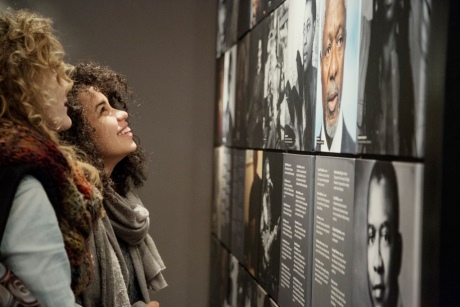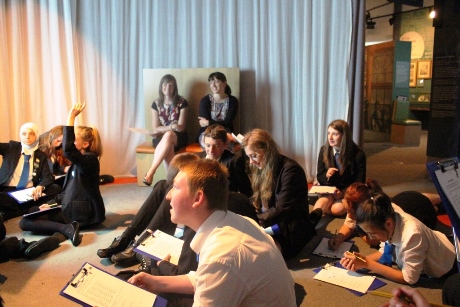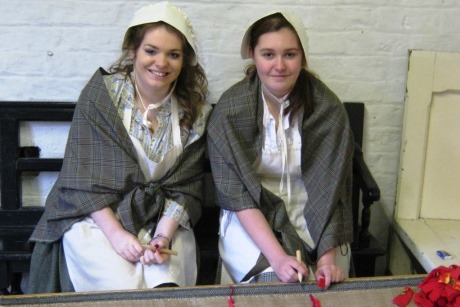
A look at the many school-friendly attractions where Citizenship is brought to life using real issues and events in both a national and global context.
This subject provides far-reaching and important foundations for secondary school pupils as they move towards adulthood, including an awareness and understanding of government and the justice system along with skills to analyse political and social issues and make reasoned arguments.
Liverpool’s poignant International Slavery Museum, the only one of its kind, examines aspects of historical and contemporary slavery as well as being an international hub for resources on human rights issues. Education sessions are free and guided museum tours for KS3 and KS4 provide an overview of the biggest forced migration in human history, helping students develop their understanding of the slave trade and its impact on African people.
The People’s History Museum in Manchester is also a unique venue. As the national museum of democracy it aims to engage, inspire and inform students by showing there have always been ideas worth fighting for. Engaging history sessions use performance, interactive drama and gallery exploration to bring Citizenship to life. They include Strike a Light! which is suitable for KS3 and KS4. Pupils meet Maggie McCallow, a Victorian match girl involved in the match girl’s strike of 1888.

Pictured: Peoples History Museum. (Photo credit: People's History Museum).
For a really immersive educational trip take a look at The Deep in Hull which is home to 3,500 marine species. School groups can learn about the aquarium’s conservation ethos and participate in sessions linked to the Citizenship curriculum. SOS Save Our Seas is a new workshop for KS3 and KS4 which addresses the very topical and global problem of plastic in our oceans.
The Sutton Life Centre is an impressive educational and community facility promoting citizenship, safety and the environment. It offers a range of school packages that incorporate wellbeing, including workshops and the award-winning life skills tour for KS3. The tour covers four separate scenarios including a street with real shop facades where students are faced with age appropriate dilemmas such as peer pressure, alcohol, smoking, street crime, gangs, knives and bullying.
The trio of Georgian and Victorian institutions that make up Ripon Museums provide a high quality learning experience which stimulates KS3 and GCSE pupils to ask perceptive questions, think critically, weigh evidence and develop judgement. Sessions make the most of the atmospheric environment inside the workhouse museum - which has recently doubled in size - courthouse and police station with a prison.

Pictured: Pupils at the Ripon Museums.
Charles Dickens was a sympathiser of the poor and oppressed, which is reflected in his novels where characters are drawn together to gain a better understanding of each other. The Charles Dickens Museum is the London home where he wrote some of his most celebrated works including Oliver Twist, The Pickwick Papers and Nicholas Nickleby. Options for Secondary pupils with a knowledge of Oliver Twist include Dickens’s Social Conscience, a workshop that examines poverty in Victorian Britain and Dickens’ role as a social reformer.
Staying in London, what better place to experience democracy first-hand than the Houses of Parliament? Educational groups are offered a tour of Westminster Palace which, depending on parliamentary business, might include the chambers of the House of Lords or House of Commons and a visit to the public gallery to observe MPs or Lords working. These are combined with a workshop such as the People’s Voice, which is suitable for all secondary school pupils and includes meeting historic suffragette characters and considering issues facing young people today.
Lead image: International Slavery Museum. (Photo credit: Dan Kenyon).










